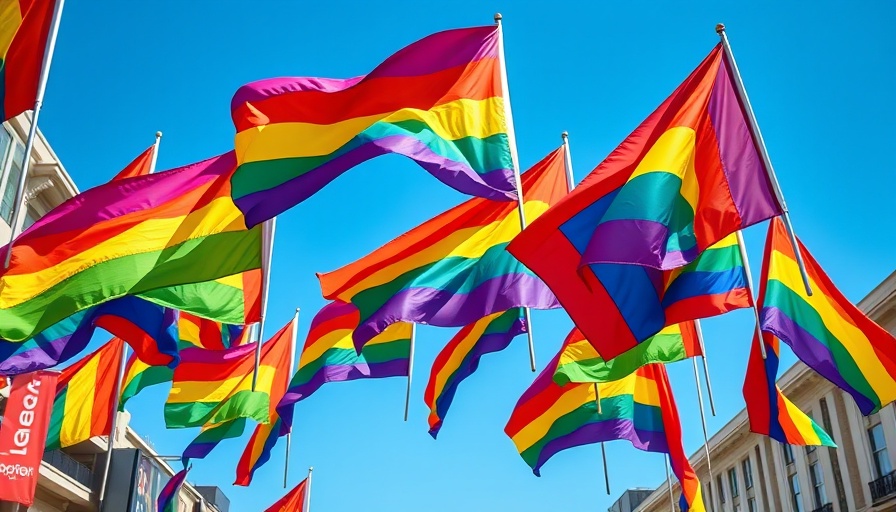
The Unfolding Conflict Over Drag Shows in Texas
The ongoing battle regarding drag performances in Texas has taken a contentious turn, especially with the introduction of Senate Bill 18. Aimed at restricting state funds from public libraries hosting events featuring drag queens, this bill has reignited debates on children's safety and freedom of expression. While it attempts to tackle concerns raised by conservative circles, critics argue that a profound misunderstanding of drag's historical significance fuels this legislative fight.
Understanding the Bill's Purpose and Context
The proponents of Senate Bill 18 argue it is a direct response to ensure children's safety in community spaces. During a recent hearing, Senator Bryan Hughes emphasized the need to protect children from what he sees as inappropriate influences. Despite his concerns, it is essential to evaluate whether these fears are substantiated or a reflection of broader societal anxieties.
The Historical Significance of Drag Performances
As legal director of the Texas Civil Rights Project, Dustin Rynders provided a critical perspective during the hearing, shedding light on the rich history of drag. He noted that drag has transcended its performance art status and has roots stretching back centuries. The very notion of men dressing as women for theater plays is deeply embedded in several cultures. The portrayal of gender fluidity found in drag is, in essence, a long-held tradition and a crucial form of artistic expression.
The Broader Impact of Anti-Drag Legislation
The implications of Texas’ latest drag show legislation extend far beyond the immediate target of public libraries. The recent ban on drag shows at Texas A&M University could set a dangerous precedent. The Queer Empowerment Council has taken a stand against this ban by initiating a lawsuit, arguing for the protection of their rights in the face of discriminatory legislation. Such actions highlight the resilience of communities pushed by societal norms and regulations that aim to marginalize their identities.
Exploring Diverse Perspectives
A strong counter-argument emerges from testimonies like that of Brigitte Bandit, an Austin drag queen, who articulates the need for equality in artistic expression across genders. Bandit's argument addresses a fundamental inconsistency in how drag performances are viewed based on gender. For them, the bill does not only restrict others; it also undermines their rights to engage in artistic expression simply based on gender identity.
Future Predictions in the Drag and LGBTQ+ Advocacy Landscape
The trajectory of such legislative movements could signal a rise in similar actions across various states, fueling a broader culture war around gender identity. Advocates fear that if legislation restricting drag performances gains traction in Texas, it could embolden similar measures in conservative states nationwide. This potential future poses significant risks to LGBTQ+ rights, potentially leading to a wave of cultural conservatism that undermines decades of progress.
Conclusion: The Emphasis on Community Advocacy
The battle against legislation that seeks to limit drag performances is more than just a fight over entertainment—it speaks to larger issues of identity, acceptance, and the fundamental rights of individuals. Communities across Texas and beyond must stand in solidarity against such measures, advocating for continued support of diversity and artistic expression. It's a call to action for local supporters of LGBTQ+ rights and for allies to engage meaningfully in this ongoing dialogue.
Your voice matters. Join local movements, participate in discussions, or stand with those affected by these proposed regulations. Now is the time to ensure that our community respects and values every form of artistic expression.
 Add Row
Add Row  Add
Add 




 Add Row
Add Row  Add
Add 

Write A Comment